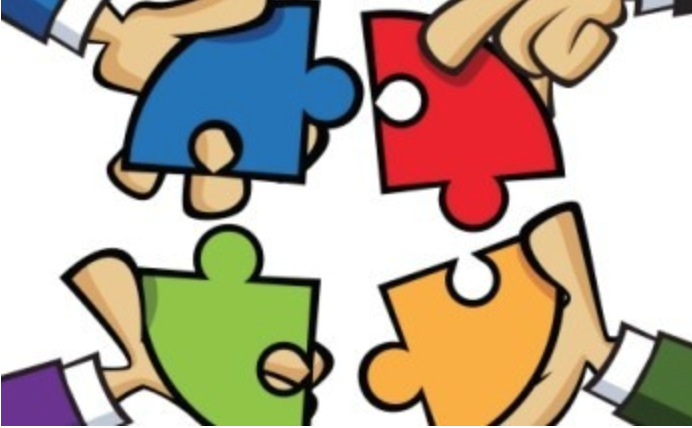Cooperative learning
Firstly, what is cooperative learning? Cooperative learning refers to instructional methods in which students work in small groups to help each other learn. Four major theoretical perspectives on achievement effects of cooperative learning are: Motivational, social cohesion, developmental, and cognitive elaboration (Slavin, 2014). In a course, students are divided into few small groups. Each group has a common learning goal, and everyone has their own task. Students can strengthen their skills while working in groups, while they influence each other. Group members will have opportunities to communicate when they are studying. This allows students to understand the strengths and weaknesses of other students. They can develop their study skills such as problem solving, communication and collaboration. Cooperative learning is to let a group of students complete the common learning objectives, influence each other, and share ideas, learn from each other, which can make students’ opinion without limitations and stimulate the creativity of students’ thought. Teacher doesn’t interfere too much in the process. This will help everyone’s self-study ability and communication ability.
Benefits of cooperative learning:
- Positive interdependence: Because of each group member have the same goal, everyone works together to develop their strengths and complement each other’s weaknesses.
- Positive interaction: If you work alone, sometimes people will have limited idea about some section. You can learn from each other. Co-operative students support each other and communicate, that will inspirit your idea.
- Interpersonal and team skills: In teamwork, communication builds friendships. Everyone will have more efficient to finish their work if they use the skills, they are good at. In the learning process, communication can provide feedback to each other, and people have opportunity to hear different ideas.
- Reasonable distribution: Team members work together to discover their strengths and weaknesses. Strengths can help you build confidence. Each person develops his or her own strengths and understanding each other’s abilities contributes to efficient cooperation.
- Critical Thinking: Students can develop their critical thinking skills during study.
Our topic
Our group is Pot 3, and our topic is “How to Succeed in University?”. The main purpose of this course setting is to help students acquire more learning skills and understand some behaviours’ reason and some problem-solving methods. In my opinion, cooperative learning is consistent with our theme, because cooperative learning is also part of learning skills. There is a section in our course topic that is talks about the impact of emotions and stress on learning. I think cooperative learning can reduce some of the anxiety. When you can communicate with your team members, you will not feel lonely in learning, you can know the progress of learning in real time, communication can appropriately relieve pressure. So cooperative learning is also the way we advocate learning.
Slavin, Robert E.. (2014). Cooperative learning and academic achievement: why does groupwork work?. Anales de Psicología, 30(3), 785-791. https://dx.doi.org/10.6018/analesps.30.3.201201


Jason Xing
June 24, 2022 — 10:25 pm
I really like the layout of your blog. From the picture that catches the eye to the formatting and the paragraph spacing. It is evident that you put a lot of effort into your blogs.
The middle section really caught my attention. The way that you put a separate section to lay out your points makes it easy for readers to get a quick view of what your topic for this blog is going to be, and I think that it provides a nice summary of your overall post.